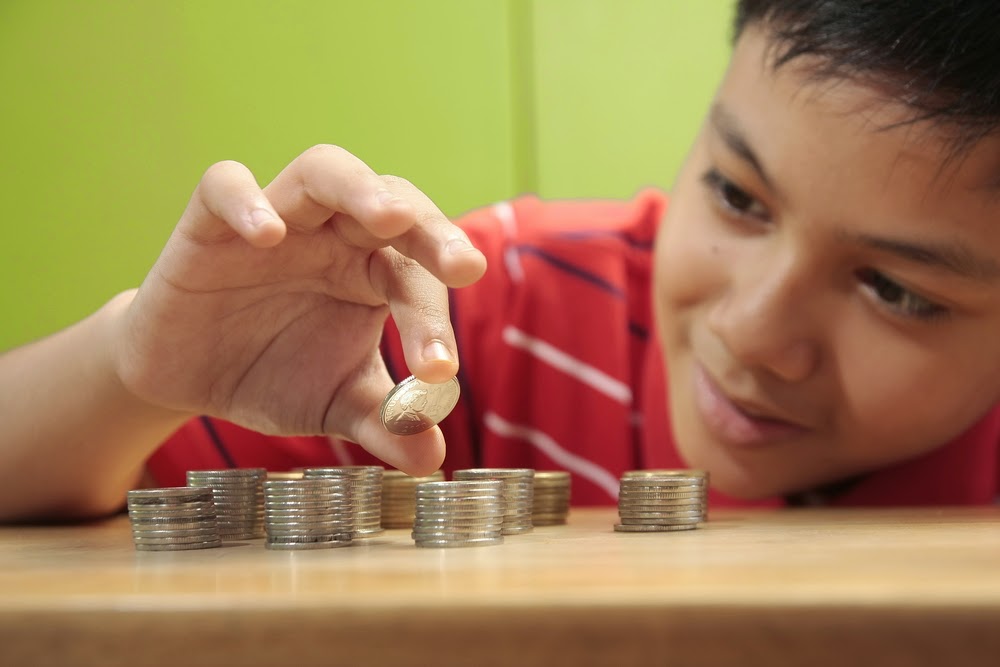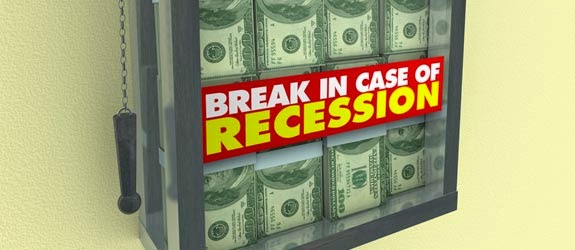Money and Finance
Emergency Funds.... what are they? Why should we have them?
Many reasons. In the basic sense of the word, Emergency Funds are for emergencies.
Let's say, you currently only have your savings. And suddenly, an unexpected expense occurs. Maybe you got retrenched or fired. That's not a scenario that's hard to imagine right? Considering that Facebook is full of complaints that many Singaporeans are replaced by foreign talents.
Another simple scenario: You just came out from Army / graduated from University/College. You're looking for a job. Do you expect to get a job straightaway? You have to send countless resumes, go through interviews. All these will take time. In the meantime, you have no income but you would definitely have expenses. Unless you're a robot and don't need to eat.

Even something simple as hospital bills could easily take a huge chunk of your savings if you are not properly insured. But when you're a teenager, insurance doesn't concern you yet.
Still, we should always have an emergency fund. I can easily give you one real life scenario that happened to my aunt's family. Firstly back in the days, they were not as well off as they were now. They were going through a rough spell. And they had no money left to pay their utilities bill. As such, when the guy went up to their place to request payment, she broke down and begged the man to let them off. My cousin who was in primary school at that time, ran into his room and brought out a chunk of cash and paid the man. My aunt was stunned beyond words. Turns out her son had been been regularly saving a part of his allowance every week.

This story has been a popular subject for reminiscence during family gatherings but that's not the point.
If an primary school boy had the foresight to have an emergency fund, what's stopping you?
Before we go any further, let me stress that emergency funds differ from your savings, or investment funds. It's not a fund that you can withdraw to say, buy a new phone or the latest jeans.
It's a fund STRICTLY for Emergencies only.

An emergency fund should be as liquid as possible. That means it must be easily accessible but at the same time not TOO accessible.
What do I mean by that? Place it in a separate bank account with a debit card. If you're at least 18, a whole world of bank accounts open up to you.
Personally, I have saving accounts with a few major banks.
1. POSB eSavings Account (Debit card)
2. OCBC Frank Current Account (Debit card)
3. MAYBANK iSavvy Savings (Debit card)
4. STANDARD CHARTERED E-Saver Account
Scour online to find accounts with little to no minimum balance at all. I use Maybank to store my emergency funds. Why do i do that? Because it meets the criteria of being easily accessible if I want it, but not so accessible that I can access it on a temptation to buy a new pair of jeans. Maybank ATMs are less common compared to POSB or OCBC but the Maybank branch that you open an account at should be relatively accessible.
OCBC acts as my main savings account. And POSB I use it as a current account which charts my daily expenses. You are free to customise to your own preference. In many cases, all you need is your Identification Card (IC) to open an account.
Now, that you know the importance of having an emergency fund and the ways to store it, let's move on to the "HOW DO I BUILD AN EMERGENCY FUND?"
Q: How big should my emergency fund be?
A: Most experts and financial planners agree that your emergency fund should hold anywhere between 3 months - 1 year of your expected expenses. Too difficult to calculate? Then 3 months worth of your monthly income is suitable as well. Let's say you earn SGD$2500 a month. Your emergency fund should consist anywhere between SGD$7500 - SGD $ 30,000.
I can already hear the voices inside the heads of readers reading this post, "But I don't have that kind of money!" Chill. You don't have to build your emergency fund straightaway. For most Singaporeans, that's going to take time.
So, let's say you're going for 6 months worth of Emergency Funds. Set aside $500 a month. That's $2k left to put into savings & expenditures. Remember, savings and emergency funds are different.
So, you set aside $500 faithfully for the next 30 months. Understand that it's not going to be built overnight. It's going to take effort and time. But it'll be worth it when you find that you're prepared for emergencies. You can thank me later :)
After 30 months, you would have your Emergency Funds set and ready to go. However, in this 30 months which is about 2 1/2 years, you might be promoted. You might have a pay raise, or you find that you can contribute more in a particular month when you receive your bonuses. Well, do it. The more you contribute, the earlier you finish building your fund and you'll sleep better at night.
Q: Now, I've finished building my Emergency Fund. What's next?
A: Firstly, congratulations! You've done what many people are not willing to do. You've taken the first step to be financially secure. You have a stack of cash stuffed away that you can withdraw in the event of an emergency.
What next? Do you stop here? You can, of course.
OR,
You continue to build it. Your short term funds are completed. Don't you feel very empty now? You've spent at least a good 2 years of your life in building this fund. Suddenly, you find that it's completed. Then, WORK ON BUILDING A LONG TERM EMERGENCY FUND.
What do i mean by that? Say you can afford to put aside $1000 -$2000. You know you don't plan to use this funds for the short term. But you don't want to see your money sitting inside the account, earning a measly amount of interest. What do you do?
Simple. You put inside a time deposit account, also known as a fixed deposit account.
Find a bank with the highest interest rate, and you can easily place it inside for a year or two with as little as $1000. 1-2 years later, the fixed deposit is completed. You would have your $1-2k back with interest as well. It may be a few dollars but do you think a normal savings account would give you that? You'd get a dollar the max, and that's if you're extremely lucky.
That's it! I'm done. Whether or not you want to implement this in your life, or customise my idea into your own is entirely up to you. Your future is in your hands, make a difference today.
Signing off,
Teenage Investor
- Debt Is Almost Gone
Earlier this month I charged almost the rest of the balance of our high interest debt off. This month I charged a total of $9.766.39 to my credit cards to pay off our debt. I left a little bit on for next payment so they take the full amount with the...
- Living Without Money: Nearly Half Of Singaporean Households Living From Paycheck To Paycheck
I refer to this link, Living without money: Nearly half of Singaporean households subsisting from paycheck to pay check Quoted: "Savings rates are way too low across the island." "Here’s an uncomfortable truth about Singaporean households: a report...
- The First Step Is Always The Hardest
Today, I received an email from a reader of my blog. His questions were very good, and so I'd thought I share it, but however keeping his identity secret of course! Let's refer to him as Reader A. Now, he shared with me that his monthly allowance...
- Why 90% Of Young Singaporeans Are Worried About Their Financial Future ; Singapore Is The Most Expensive Country To Live In
It's pretty simple. I refer to a post from The Real Singapore (TRS) http://therealsingapore.com/content/survey-90-young-singaporeans-are-worried-about-their-future-finances 90% of 1000+ youths is an alarming number of over 900+ teenagers and...
- 80% Of Young Singaporeans Have Little To No Savings At All ; Are You One Of Them?
According to this link (http://sbr.com.sg/financial-services/news/disaster-in-making-4-out-5-young-singaporeans-have-no-savings) 4 out of 5 Singaporeans have little to no savings at all! True? Source: Singapore Business Review Now, firstly I would not...
Money and Finance
Why Every Singaporean Should Have an Emergency Fund ; especially Teenagers.
Emergency Funds.... what are they? Why should we have them?
Many reasons. In the basic sense of the word, Emergency Funds are for emergencies.
Let's say, you currently only have your savings. And suddenly, an unexpected expense occurs. Maybe you got retrenched or fired. That's not a scenario that's hard to imagine right? Considering that Facebook is full of complaints that many Singaporeans are replaced by foreign talents.
Another simple scenario: You just came out from Army / graduated from University/College. You're looking for a job. Do you expect to get a job straightaway? You have to send countless resumes, go through interviews. All these will take time. In the meantime, you have no income but you would definitely have expenses. Unless you're a robot and don't need to eat.

Congratulations! You graduated! What's next?
Even something simple as hospital bills could easily take a huge chunk of your savings if you are not properly insured. But when you're a teenager, insurance doesn't concern you yet.
Still, we should always have an emergency fund. I can easily give you one real life scenario that happened to my aunt's family. Firstly back in the days, they were not as well off as they were now. They were going through a rough spell. And they had no money left to pay their utilities bill. As such, when the guy went up to their place to request payment, she broke down and begged the man to let them off. My cousin who was in primary school at that time, ran into his room and brought out a chunk of cash and paid the man. My aunt was stunned beyond words. Turns out her son had been been regularly saving a part of his allowance every week.

If a primary school child can save, so can you.
This story has been a popular subject for reminiscence during family gatherings but that's not the point.
If an primary school boy had the foresight to have an emergency fund, what's stopping you?
Before we go any further, let me stress that emergency funds differ from your savings, or investment funds. It's not a fund that you can withdraw to say, buy a new phone or the latest jeans.
It's a fund STRICTLY for Emergencies only.

A recession is an emergency.
An emergency fund should be as liquid as possible. That means it must be easily accessible but at the same time not TOO accessible.
What do I mean by that? Place it in a separate bank account with a debit card. If you're at least 18, a whole world of bank accounts open up to you.
Personally, I have saving accounts with a few major banks.
1. POSB eSavings Account (Debit card)
2. OCBC Frank Current Account (Debit card)
3. MAYBANK iSavvy Savings (Debit card)
4. STANDARD CHARTERED E-Saver Account
Scour online to find accounts with little to no minimum balance at all. I use Maybank to store my emergency funds. Why do i do that? Because it meets the criteria of being easily accessible if I want it, but not so accessible that I can access it on a temptation to buy a new pair of jeans. Maybank ATMs are less common compared to POSB or OCBC but the Maybank branch that you open an account at should be relatively accessible.
OCBC acts as my main savings account. And POSB I use it as a current account which charts my daily expenses. You are free to customise to your own preference. In many cases, all you need is your Identification Card (IC) to open an account.
Now, that you know the importance of having an emergency fund and the ways to store it, let's move on to the "HOW DO I BUILD AN EMERGENCY FUND?"
Q: How big should my emergency fund be?
A: Most experts and financial planners agree that your emergency fund should hold anywhere between 3 months - 1 year of your expected expenses. Too difficult to calculate? Then 3 months worth of your monthly income is suitable as well. Let's say you earn SGD$2500 a month. Your emergency fund should consist anywhere between SGD$7500 - SGD $ 30,000.
I can already hear the voices inside the heads of readers reading this post, "But I don't have that kind of money!" Chill. You don't have to build your emergency fund straightaway. For most Singaporeans, that's going to take time.
So, let's say you're going for 6 months worth of Emergency Funds. Set aside $500 a month. That's $2k left to put into savings & expenditures. Remember, savings and emergency funds are different.
So, you set aside $500 faithfully for the next 30 months. Understand that it's not going to be built overnight. It's going to take effort and time. But it'll be worth it when you find that you're prepared for emergencies. You can thank me later :)
After 30 months, you would have your Emergency Funds set and ready to go. However, in this 30 months which is about 2 1/2 years, you might be promoted. You might have a pay raise, or you find that you can contribute more in a particular month when you receive your bonuses. Well, do it. The more you contribute, the earlier you finish building your fund and you'll sleep better at night.
Q: Now, I've finished building my Emergency Fund. What's next?
A: Firstly, congratulations! You've done what many people are not willing to do. You've taken the first step to be financially secure. You have a stack of cash stuffed away that you can withdraw in the event of an emergency.
What next? Do you stop here? You can, of course.
OR,
You continue to build it. Your short term funds are completed. Don't you feel very empty now? You've spent at least a good 2 years of your life in building this fund. Suddenly, you find that it's completed. Then, WORK ON BUILDING A LONG TERM EMERGENCY FUND.
What do i mean by that? Say you can afford to put aside $1000 -$2000. You know you don't plan to use this funds for the short term. But you don't want to see your money sitting inside the account, earning a measly amount of interest. What do you do?
Simple. You put inside a time deposit account, also known as a fixed deposit account.
Find a bank with the highest interest rate, and you can easily place it inside for a year or two with as little as $1000. 1-2 years later, the fixed deposit is completed. You would have your $1-2k back with interest as well. It may be a few dollars but do you think a normal savings account would give you that? You'd get a dollar the max, and that's if you're extremely lucky.
That's it! I'm done. Whether or not you want to implement this in your life, or customise my idea into your own is entirely up to you. Your future is in your hands, make a difference today.
Signing off,
Teenage Investor
- Debt Is Almost Gone
Earlier this month I charged almost the rest of the balance of our high interest debt off. This month I charged a total of $9.766.39 to my credit cards to pay off our debt. I left a little bit on for next payment so they take the full amount with the...
- Living Without Money: Nearly Half Of Singaporean Households Living From Paycheck To Paycheck
I refer to this link, Living without money: Nearly half of Singaporean households subsisting from paycheck to pay check Quoted: "Savings rates are way too low across the island." "Here’s an uncomfortable truth about Singaporean households: a report...
- The First Step Is Always The Hardest
Today, I received an email from a reader of my blog. His questions were very good, and so I'd thought I share it, but however keeping his identity secret of course! Let's refer to him as Reader A. Now, he shared with me that his monthly allowance...
- Why 90% Of Young Singaporeans Are Worried About Their Financial Future ; Singapore Is The Most Expensive Country To Live In
It's pretty simple. I refer to a post from The Real Singapore (TRS) http://therealsingapore.com/content/survey-90-young-singaporeans-are-worried-about-their-future-finances 90% of 1000+ youths is an alarming number of over 900+ teenagers and...
- 80% Of Young Singaporeans Have Little To No Savings At All ; Are You One Of Them?
According to this link (http://sbr.com.sg/financial-services/news/disaster-in-making-4-out-5-young-singaporeans-have-no-savings) 4 out of 5 Singaporeans have little to no savings at all! True? Source: Singapore Business Review Now, firstly I would not...
